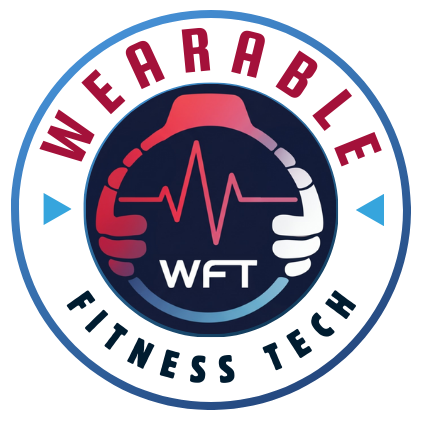It’s amazing how wearable fitness trackers have evolved, especially in the tech world. Gone are the days when these devices were just step counters. Now, they’re packed with features that help us keep tabs on every heartbeat, track our sleep, and even help us manage stress. In a fast-paced, innovation-driven industry like tech, fitness trackers have become almost like personal wellness assistants that can guide us to a healthier lifestyle—all from a small gadget on our wrist.
But this trend isn’t just about staying fit; it’s about empowering women in tech to balance work demands with wellness. In fact, a recent survey shows that 45% of women in tech now use fitness trackers daily, highlighting the pivotal role these devices play in our lives.
And let’s talk about the real stories. Just imagine a software engineer who codes for hours but still finds time for her daily yoga session, all guided by her fitness tracker. Or a project manager whose watch gently nudges her to take a breather after hours of intense Zoom calls. These aren’t just gadgets; for many of us, they’ve become lifestyle companions.
Wearables have gone beyond fashion statements. They are now indispensable tools that help women in tech keep tabs on their health in a way that feels personal and sometimes even necessary. It’s not just about counting steps; it’s about staying motivated and connected to our well-being in a world that often feels like it’s moving a mile a minute.
To explore more options tailored for women juggling fitness, wellness, and demanding careers, check out our list of the best smartwatches for women.
Why Fitness Trackers Are Essential for Women in Tech
In the buzzing tech world, staying healthy isn’t only about fitness; it’s about staying mentally sharp, focused, and motivated. Tech roles often come with long hours, project deadlines, and plenty of screen time—all of which can be taxing. This is where fitness trackers shine, helping women in tech maintain a fine balance between work, wellness, and everything in between.
Accessibility to Health Data for Smarter Choices
With fitness trackers, it’s easy to see real-time health data with just a glance. Many devices monitor stress levels, heart rate variability (HRV), and even offer reminders to move when we’ve been sitting too long. This accessibility to data helps us make quick, informed decisions on when to take a breather, step outside for a quick walk, or spend a few moments meditating.
Addressing Unique Health Needs for Women
Fitness trackers aren’t just about generic health metrics—they’re also designed with specific features for women. From menstrual cycle tracking to hydration reminders, these gadgets provide insights that are especially relevant to the unique health needs of women. This kind of tailored support can help build a meaningful wellness routine that fits the demands of a tech career.
Building a Balanced Routine in a Fast-Paced World
For many women in tech, the journey with a fitness tracker often starts with a desire to create a balanced routine. With constant access to health data, it becomes easier to make proactive choices about sleep, exercise, and even stress management. These small steps can make a big difference, allowing us to stay healthy and energized even when work gets intense.
Top Features of Fitness Trackers That Appeal to Women in Tech
So, what features make fitness trackers a must-have for women navigating the tech scene? Here’s a closer look at the essential attributes that set these gadgets apart.
1. Heart Rate Monitoring for Managing Stress
Stress is a common challenge in tech, where deadlines and project pressures can create mental and physical strain. Heart rate tracking allows us to monitor how stress impacts our bodies. With insights into heart rate variability (HRV), you can recognize when you need to take a break, meditate, or simply pause to breathe. Some trackers, like the Fitbit Charge 5, even have built-in stress management tools.
2. Sleep Tracking for Optimal Rest and Recovery
A good night’s sleep is crucial, especially in a demanding job. Sleep tracking features provide insights into sleep stages, quality, and duration. By analyzing your sleep patterns, devices like the Apple Watch can suggest ways to improve rest, which can positively impact productivity and mood. This is invaluable when you’re preparing for big meetings or presentations.
3. Cycle Tracking and Women’s Health Metrics
For women, cycle tracking can be an incredibly useful feature. Trackers like the Fitbit Luxe and Apple Watch allow you to log menstrual cycles, symptoms, and even get predictions on your cycle, helping you plan workouts, optimize productivity, and understand patterns in your energy levels.
4. Hydration and Activity Reminders for Better Balance
In tech, it’s easy to get lost in work and forget basic self-care like hydration or movement. Many fitness trackers offer hydration tracking and reminders to move. These nudges help you stay refreshed, focused, and energized, even on intense workdays.
5. Style and Customization for Seamless Integration
Fitness trackers have evolved beyond functional accessories; they’re now style statements. Customizable bands, watch faces, and minimalist designs mean you can wear them in any setting, from the boardroom to the gym. Devices like the Fitbit Luxe and Garmin Lily are especially popular for their sleek, stylish designs that seamlessly blend with professional attire.
6. Connectivity with Smart Devices for Enhanced Productivity
Many fitness trackers integrate easily with smartphones and apps, allowing you to set reminders, check notifications, and even answer calls. For example, the Apple Watch enables you to send texts, take calls, and access productivity apps like Google Calendar—all without picking up your phone.
Evaluating the Best Fitness Trackers for Women in Tech
With so many options out there, finding the right fitness tracker can feel overwhelming. Here’s a breakdown of top picks that balance health tracking, productivity, and style, plus a quick comparison of features to help you decide.
| Device | Best Features | Battery Life | Price Range |
| Apple Watch Series 10 | Advanced health tracking, multitasking, integration with Apple ecosystem | 18 hours | $$$ |
| Fitbit Charge 6 | Comprehensive fitness and sleep tracking, stress tools | Up to 7 days | $$ |
| Garmin Lily 2 | Stylish design, tailored health insights, hydration tracking | 5 days | $$ |
| Oura Ring 4 | Sleep and recovery tracking, minimalistic design | 4-7 days | $$$ |
| Whoop 4.0 | Focused on recovery and strain metrics, in-depth analysis | 5 days | $$$ |
Each of these trackers brings something unique. For instance, the Apple Watch Series 10 is excellent for multitasking with apps and smart notifications, while the Garmin Lily 2 appeals to those looking for a sleek, stylish option with women-centric features. Meanwhile, the Oura Ring 4 is perfect for those who prefer a discrete, non-wrist option focused on recovery and wellness.
Practical Tips for Integrating Fitness Trackers into Your Lifestyle
Once you’ve chosen your device, the next step is incorporating it into your daily routine in a way that truly supports your goals. Here are some practical tips to get the most out of your fitness tracker.
Set Realistic Health and Wellness Goals
Start by setting attainable goals. For example, aim for a certain number of steps per day, regular reminders for hydration, or logging your sleep hours. Small, realistic goals can make a huge difference in motivation and consistency.
Use Data for Personalized Health Decisions
These devices offer a wealth of health insights that are easy to overlook. Take time each week to review your data, noting any patterns in sleep, stress, or activity levels. Then, think about what adjustments you can make. For instance, if your heart rate spikes during certain tasks, try breaking them into smaller chunks.
Connect with Others for Motivation
Most trackers offer social and community features, from challenges to step competitions. Joining a virtual group or connecting with friends can be a great motivator, especially during those long work weeks when it’s tempting to skip exercise.
Incorporate Wellness Breaks into Your Workday
Use your tracker’s reminder features to take regular wellness breaks. Schedule short stretches, eye exercises, or breathing sessions. These mini-breaks can help prevent burnout and keep your energy levels stable throughout the day.
For additional health and fitness tips, please check our article on health and fitness tips for women in tech where we share 10 simple ways to stay active in a desk job.
Advancements in Wearable Technology: What’s Next for Women in Tech?
Wearable tech is advancing rapidly, and fitness trackers are leading the charge. Here’s a glimpse at some upcoming trends that are set to change the landscape for women in tech.
Artificial Intelligence and Personalized Insights
AI is revolutionizing wearable tech by delivering increasingly personalized health insights. Imagine a fitness tracker that suggests optimal sleep schedules or alerts you to potential health risks based on months of data. These advancements will make fitness trackers even more valuable as personalized wellness tools.
Medical-Grade Monitoring Features
Companies are working on integrating medical-grade sensors, with the potential to monitor blood sugar, hydration, and more. These features could offer new levels of health support for women, particularly those managing chronic conditions or high-stress roles.
Longer Battery Life and Charging Innovations
Future devices are focusing on extended battery life, with solar-powered and kinetic charging options in development. This means fewer charging interruptions, making it easier to wear and rely on fitness trackers around the clock.
Long-Term Benefits: Empowering Women Through Health Technology
Using wearable fitness technology goes beyond daily wellness; it empowers women in tech to make informed choices for long-term health. With consistent use, these devices can bring noticeable improvements in energy, mental health, and physical well-being.
Women across the industry share stories of transformation through fitness trackers, from establishing consistent sleep schedules to achieving sustainable fitness goals. Beyond physical health, fitness trackers also help build community bonds through shared challenges and goals, creating a support system that motivates and encourages.
In the end, fitness trackers are more than gadgets—they’re tools for sustainable, meaningful change. For women in tech, they provide not only a way to track immediate health metrics but also a path to long-term wellness and balance in a fast-paced world. By embracing fitness technology, we can take proactive steps toward a healthier, more balanced life, all while thriving in our careers.
This is just the beginning of the journey with wearable tech, and as technology advances, so will the opportunities to enhance our well-being. Whether you’re a developer, project manager, or creative in tech, a fitness tracker can be a great investment in yourself and your future.
Conclusion: Embracing Wearable Tech for a Healthier, Balanced Life
For women in tech, fitness trackers are more than just trendy gadgets—they’re powerful tools that support a balanced approach to health and work. As these devices continue to evolve, they offer increasingly personalized insights, helping women manage not just their physical well-being but also mental and emotional resilience in high-demand roles.
With features like heart rate monitoring, sleep tracking, cycle tracking, and stress management, fitness trackers provide meaningful data that makes it easier to make proactive, informed choices about wellness. Whether it’s a reminder to stretch during a long workday, insights into sleep patterns, or connecting with a community for extra motivation, these wearables are transforming how women in tech approach self-care.
As the tech landscape continues to grow, embracing wearable fitness technology can be a key part of thriving in a fast-paced, challenging environment. By investing in a fitness tracker and making small, consistent wellness choices, you’re not only supporting your health today but also setting yourself up for a future of sustained well-being.
So, if you’re considering a fitness tracker, know that it’s not just a purchase—it’s a commitment to yourself. In a world where work demands are high, your wellness matters just as much. Embrace the power of wearable tech to stay connected to your health, and let it be your partner in achieving a balanced, fulfilling career in tech.

